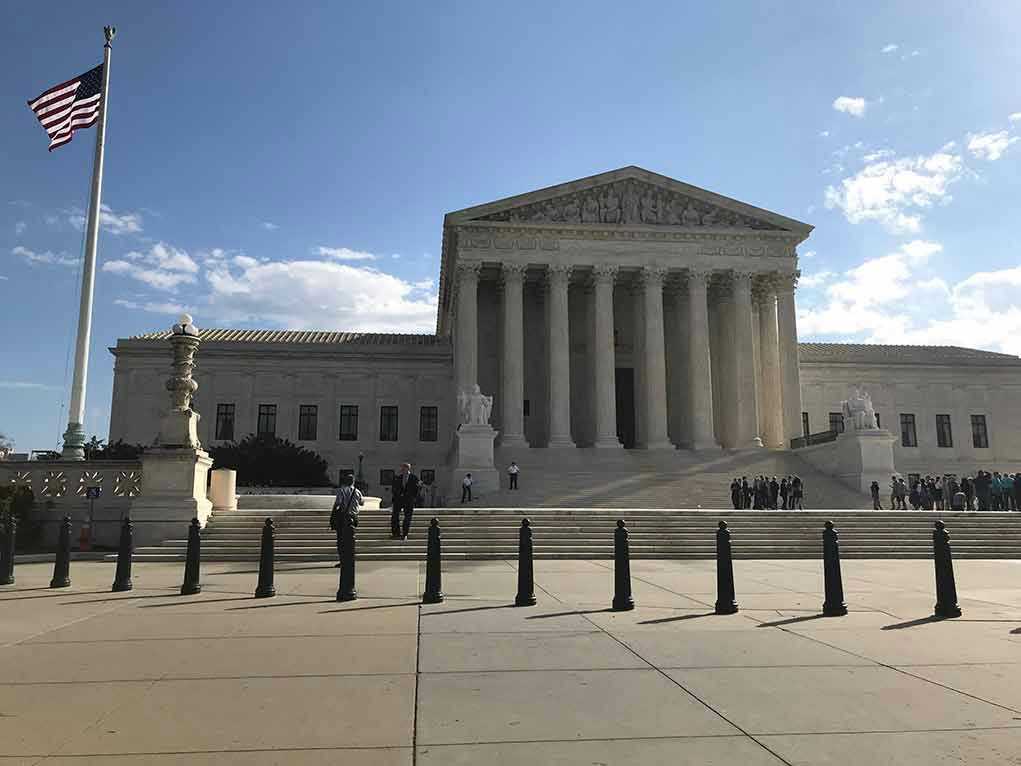
America now faces a Supreme Court showdown that could decide whether state-run agencies like New Jersey Transit get a legal hall pass when their buses cause carnage outside their own state lines—an outcome that could either shield government bureaucrats or finally hold them accountable, depending on which side of sanity you’re on.
At a Glance
- The U.S. Supreme Court will resolve whether New Jersey Transit can be sued in other states for accidents outside New Jersey.
- Conflicting rulings in New York and Pennsylvania have left accident victims in legal limbo and taxpayers on the hook for cross-border lawsuits.
- The case pits state sovereignty and government protectionism against the rights of everyday Americans to seek justice and accountability.
- The high court’s ruling will impact every state agency operating beyond its borders, from buses to universities and hospitals.
Supreme Court to Decide If State Agencies Are Beyond Accountability
New Jersey Transit, the crown jewel of state-run transportation dysfunction, has made its way to the nation’s highest court. The question: can it duck lawsuits when its buses mow down pedestrians or crash in neighboring states, or must it finally answer to the people it allegedly serves? Two high-profile accidents—one in Manhattan, another in Philadelphia—have thrown this issue into the national spotlight, exposing just how far state bureaucracies will go to shield themselves from responsibility.
New York’s highest court, in a rare moment of clarity, ruled that New Jersey Transit doesn’t get immunity just because it’s a government agency. Pennsylvania’s Supreme Court, in contrast, handed NJ Transit a get-out-of-court-free card, citing “state sovereign immunity.” So now, thanks to a legal tug-of-war between two blue states, we’re left with a split so ridiculous it would make even the Founders cringe. The Supreme Court has now stepped in to resolve the madness, consolidating both cases for a decision expected next year.
The Stakes: State Power Versus Individual Rights
The implications of this case are enormous, especially for those who still believe the Constitution protects the little guy from government overreach. If the court sides with New Jersey Transit, state agencies everywhere could dodge responsibility for whatever havoc they wreak outside their own borders, leaving accident victims and their families twisting in the wind. The government would be free to operate with impunity—untouchable by the very citizens who pay its bills.
On the flip side, a ruling against immunity means that state-run entities will finally have to answer for their actions, no matter where those actions take place. This would be a rare win for common sense and accountability—two concepts that seem to have become foreign in today’s bloated, bureaucratic America. Transit agencies and their government backers are already moaning about the prospect of increased litigation and higher costs, as if being forced to play by the same rules as everyone else is some existential threat to public service.
A Case Study in Government Protectionism
It’s almost poetic how quickly state governments circle the wagons when their power is threatened. New Jersey Transit, backed by the full weight of Trenton’s political machine, insists that sovereign immunity is “essential” to protect public coffers and keep buses rolling. Accident victims—real people with real injuries—are portrayed as greedy opportunists, exploiting the system for a payday. Meanwhile, the agency’s cross-border operations continue unabated, with zero accountability for the chaos occasionally left in their wake.
The legal wrangling exposes the ugly truth: state-run entities expect all the privileges of government protection with none of the responsibility. They want your tax dollars, your patience, and your silence—but don’t you dare ask for justice if you’re harmed in the process. The Supreme Court’s decision will either uphold this lopsided arrangement or finally inject a dose of fairness into the system. For anyone who values the rule of law, the outcome couldn’t be more consequential.
Ripple Effects for Every State-Run Bureaucracy
This isn’t just about NJ Transit. The court’s ruling will set the standard for every state-owned institution operating across borders—universities, hospitals, infrastructure authorities, you name it. If immunity stands, expect a new era of government impunity, with agencies emboldened to expand their reach while sidestepping responsibility. If the court restores accountability, it might just slow the relentless expansion of unchecked state power—at least for now.
Of course, the usual suspects are weighing in: legal scholars, advocacy groups, and public sector unions all jockeying for influence. Victim advocates demand justice, while government lawyers warn of financial ruin if the court doesn’t maintain their sacred shield. The rest of us? We’re left watching a government that will spend endless hours and taxpayer dollars to avoid simply doing the right thing. Only in America can accountability be considered a radical concept.
Sources:
U.S. Supreme Court docket and briefs
















